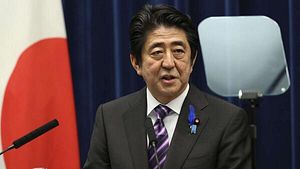As Clint Richards reported over at the Tokyo Report, Japan has made real diplomatic progress with North Korea on the long-outstanding issue of abducted Japanese citizens. The issue was originally thought to have been resolved following the 2002 Pyongyang Declaration between then-prime minister Junichiro Koizumi and Kim Jong-il. With this recent breakthrough on the abductees issue, it is appears increasingly likely that Japan will press on with North Korea, attempting to build on the diplomatic momentum achieved recently in Sweden and China. Tokyo’s achievement with North Korea was not without cost, however. Japan has moved to ease some sanctions on North Korea, including allowing greater port access to North Korean vessels, lifting some travel restrictions, and easing financial transaction sanctions. While Japan reaps the benefits of its engagement with North Korea, South Korea and the United States might find Tokyo’s unilateral diplomacy counterproductive to the trilateral deterrence that has been in place in Northeast Asia since the Six Party Talks crumbled.
Despite its diplomatic compliance with Japan on the abductees issue, North Korea continues to remain Northeast Asia’s basket case nation, continuously threatening South Korea and the United States as it pushes on with its nuclear program. As such, it is only reasonable that anxieties are growing in Seoul and Washington over Japan’s unilateral diplomatic pursuits with North Korea. As J. Berkshire Miller notes in The National Interest, “Seoul especially worries that Abe risks undermining trilateral efforts aimed at thwarting the North’s plans to continue developing its missile and WMD technologies.” This risk only becomes a real issue for the U.S.-South Korea-Japan trilateral if Japan either rewards North Korea disproportionately for complying with it on the abductees issue or rewards it preemptively. In both cases, North Korea might find itself emboldened and continue to provoke Seoul.
Japan’s approach to North Korea over these past months has been far from monolithic, though. The Japanese government has issued statements condemning North Korea’s ballistic missile tests, including a recent test that occurred right before North Korean and Japanese negotiators met in Beijing. At the same time, Tokyo has been careful not to let its criticism on North Korea stymie negotiations. For Japan, the best approach seems to be to parallelize its approach to diplomacy with North Korea: it should simultaneously encourage progress on the abductees issue for domestic political reasons while making sure that its diplomats continue to walk the same line as the United States and South Korea when it comes to more strategic issues emanating from North Korea, such as its nuclear program. Despite anxieties in Seoul, Tokyo’s diplomacy currently embodies this.
Japanese Prime Minister Shinzo Abe is particularly keen on attaining a satisfactory outcome on the abductees issue partly because he fears that a brazen North Korean provocation such as a new nuclear test or attack on South Korea military assets would effectively tie his hands. In such a scenario, Japan would find itself forced to either renew sanctions against Pyongyang or break ranks with the U.S. and South Korea. The second outcome is highly unlikely and political infeasible for Abe who has already spent substantial foreign policy capital with the Japanese public on his bid to reinterpret Japan’s constitution on collective self-defense.
The best-case outcome for Abe is successfully resolving the abductees issue and at the same time establishing a workable diplomatic relationship with Pyongyang that would allow his government to serve as an intermediary between South Korea and the United States and Pyongyang. Given the opacity of North Korean intentions, it is difficult to know if this is even a real possibility — North Korea is likely pushing on with these negotiations precisely because Tokyo is willing to go tit-for-tat with concessions. Once the abductees issue is said and done, we may find that Northeast Asia is back to its diplomatic status quo ex ante.

































